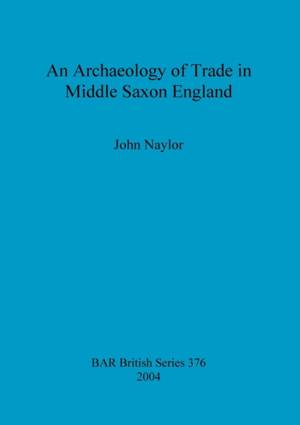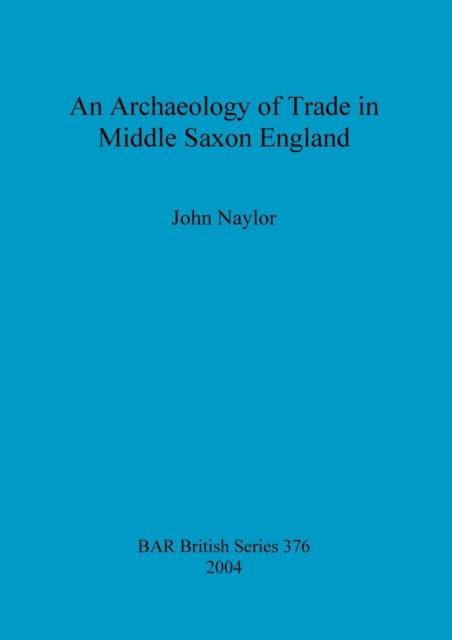
- Retrait gratuit dans votre magasin Club
- 7.000.000 titres dans notre catalogue
- Payer en toute sécurité
- Toujours un magasin près de chez vous
- Retrait gratuit dans votre magasin Club
- 7.000.000 titres dans notre catalogue
- Payer en toute sécurité
- Toujours un magasin près de chez vous
Description
The aim of this book is to provide a regional component to the study of the early medieval economy (Middle Saxon England), and from this, to re-assess trade during the period. The work looks at the archaeology of trade in middle Saxon eastern England, based around the regional analysis of a range of data intended to reflect different aspects of the Anglo-Saxon economy. In broad terms the aims are twofold. Primarily, the book works towards a new understanding of the operation of trade on a regional basis andat all levels, i.e. local to international networks of trade. Secondly, it critiques and challenges traditionally held views of an urban-centred economy based around the long-distance trade in prestige goods. These central aims are further refined into a number of research questions that are explored through the project. These are: To what level were rural regions involved in trade? How was trade organised in middle Saxon eastern England, and how might any regional differences be explained? What was the nature of the involvement of royalty and the church in early medieval trade? These questions form the core of the aims for the book. It is divided into six chapters, each chapter designed to examine an aspect of early medieval trade.
Spécifications
Parties prenantes
- Auteur(s) :
- Editeur:
Contenu
- Nombre de pages :
- 180
- Langue:
- Anglais
- Collection :
- Tome:
- n° 376
Caractéristiques
- EAN:
- 9781841716473
- Date de parution :
- 01-12-04
- Format:
- Livre broché
- Format numérique:
- Trade paperback (VS)
- Dimensions :
- 210 mm x 297 mm
- Poids :
- 594 g







